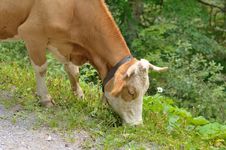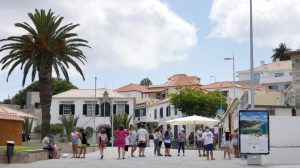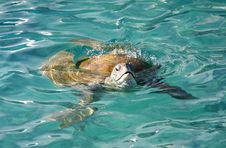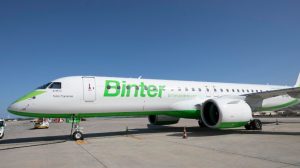Sérgio Gonçalves, President of the Madeira Socialist Party, accused, berated the Regional Government (RG) for allowing the mountainous regions of Madeira to become full of weeds, as well as reiterating that the RG cannot blame landowners for not keeping the land clean, when the management of these areas is a public concern not private.
The president of PS Madeira, who took part in the Sheep Shearing Festival yesterday in Pico do Prado, in the Santo António mountains, slammed the RG’s excuse that the mountains are overgrown because most of the land is privately owned, and are not tended to, because of economical reasons.
In view of this statement, Sérgio Gonçalves made a point of clarifying that these lands are private, but have public management, due to the model imposed by the Executive, which prevents owners from using and monetizing these same assets. “That’s why clearing land is not economically viable,” explained the socialist leader, advocating the adoption of a model that integrates nature protection with traditional human activities, thus generating opportunities, employment, quality products and more security in the territory, rather than just relying on fire breaks as seen in Caminho dos Pretos, which cost millions to create and maintain.
On the other hand, the official recalled that, as the PS had promised, he presented in the Legislative Assembly of Madeira, in July 2021, a project that provided for a new silvopastoral regime for the Region. It was, as he explained, a new strategy for grazing in Madeira that foresaw the active involvement of associations of cattle breeders, shepherds, guaranteeing them training, while providing an income for rural populations in land management, thus keeping local territories clean, productive and safe. The socialist proposal also provided, for areas considered to be priority, a payment per clean area to those who kept their animals grazing in accordance with the new rules.
However, the project was rejected in Parliament, because “other parties, which for years were present at the shearings saying that they would defend grazing against a prohibition regime arrogantly imposed by the Regional Government, betrayed the pastors by voting against the project.”
Sérgio Gonçalves referred specifically to the CDS party – who are now part of the Government –, who could and should have protected cattle farmers, however, during a U turn, they then confirmed that supported Government grazing already existed, and the matter was closed.
“By defending grazing, we can create opportunities and income for people and bring economic, social and environmental benefits that currently do not exist in the region. We need to eradicate old systems and beliefs and stop pretending that grazing exists. By doing this, all that is created are situations of inequality as to who and who doesn’t comply with legal requirements, while others are persecuted and their animals are slaughtered on the pretext of not complying with the law.” said Sérgio Gonçalves. “We defend grazing because we believe that it benefits territorial planning, and is an ecological way to keep the mountains safer and more fire resistant.”
As Sérgio Gonçalves explained, grazing, if properly guided, can generate economic development, help fight poverty in rural areas, generate employment and income opportunities and, at the same time, provide a service to the Region for the maintenance and security of the territory and reinforce food sovereignty, reducing the need to import certain animal products for food, and, which are now subsidised.
The PS president also noted that grazing is a solution to be taken into account in the prevention of fires, through the control of invasive plants and the creation of areas of forest discontinuity that stop the progression of fires with reduced maintenance costs.
He also expressed his concern about the visible danger, with the mountains completely dominated by broom and gorse, failed reforestation where only dead trees remain, plastic nets, iron and “spent millions that could be used to invest in infrastructure for animals and circulating shepherds and their flocks by which weeds can be controlled in a much more efficient and economical way.”
Defending this traditional activity, which, he stressed, goes far beyond shearing, Sérgio Gonçalves guaranteed that the PS is on the side of cattle breeders, highlighting the benefits of guided grazing.
Samantha Gannon
info at madeira-weekly.com






